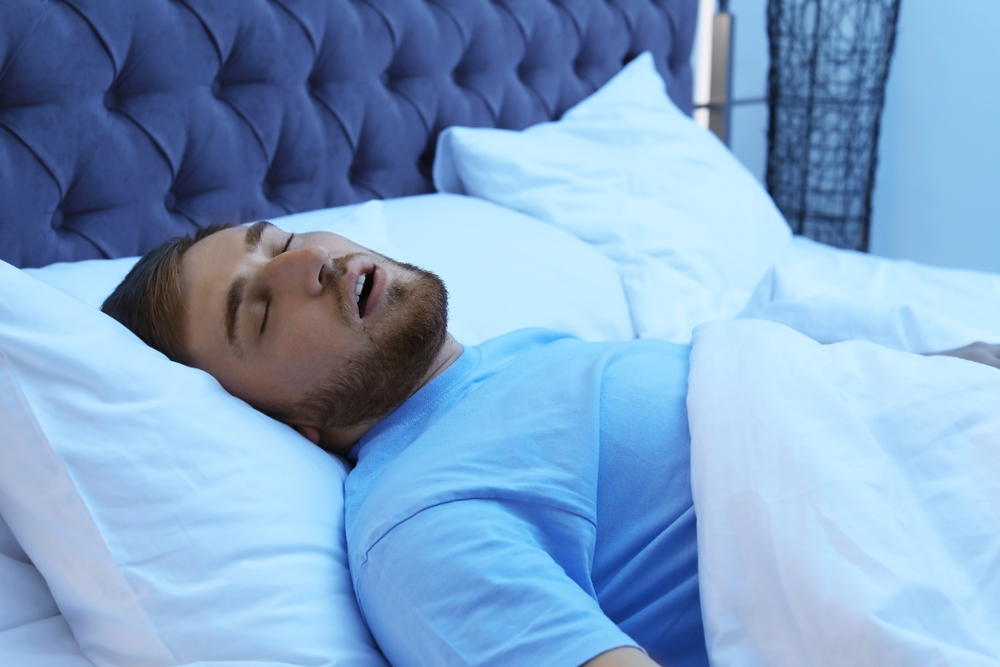It’s common to joke about snoring, comparing it to buzzsaws and the need for earplugs. However, snoring can actually indicate a serious medical condition known as sleep apnea.
Sleep apnea is a disorder that obstructs the airways during sleep. While some may experience fatigue and exhaustion despite a full night’s rest, others may suffer from more severe consequences, such as high blood pressure and heart problems.
What are signs of sleep apnea?
Snoring is one of the primary symptoms of sleep apnea, but not everyone who snores will have sleep apnea (and not every case of sleep apnea will result in snoring).
There are additional symptoms you should watch for, including:
- A pause or stoppage of your breathing pattern during sleep (usually, these episodes would need to be reported by another person—it’s not something you would be aware of).
- Loud snoring (this is something that you may or may not notice on your own).
- Excessive sleepiness during the daytime hours.
- Excessive irritability.
- Waking up with a dry mouth.
- Waking up with a headache.
- Difficulty staying asleep.
- Gasping for air while you’re sleeping.
If you experience these symptoms, you may have sleep apnea, and you should make an appointment for diagnosis and treatment.
What are the types of sleep apnea?
There are two different types of sleep apnea:
- Central sleep apnea occurs when the signals between your brain and your body become interrupted. Usually, your brain sends specific breathing signals while you sleep. But with central sleep apnea, that does not happen as it normally would.
- Obstructive sleep apnea is more common. This occurs when the throat muscles relax during sleep. As the throat muscles relax, the tissues of the throat then obstruct your airway.
It’s also possible to have Complex sleep apnea, which is a combination of the two forms of sleep apnea.
Who is at risk for sleep apnea?
There’s no one who is immune from sleep apnea. Even children have been known to develop symptoms. But there are some risk factors that can make you more likely to develop sleep apnea over time. Some of those risk factors include:
- Family history: If someone in your family has sleep apnea, you may be more likely to develop symptoms as well.
- Age: As you grow older, you may be more likely to develop sleep apnea.
- Smoking: According to most research, smokers are three times more likely to have an obstructed airway than non-smokers.
- Obesity: Fat deposits around the neck can significantly increase the likelihood of sleep apnea.
- Alcohol use: Alcohol can relax the muscles around the neck. If you drink before you go to sleep, the muscles in your neck may become too relaxed and obstruct the airway.
This list is not exhaustive. There are other additional risk factors that can increase your odds of developing sleep apnea.
If you think you are at risk of sleep apnea, you should get evaluated.
When to see a specialist for sleep apnea
The more symptoms and the more risk factors you notice, the more likely you are to have sleep apnea. But only a doctor can make that determination. In many cases, a sleep study will be required to make a firm diagnosis.
Once your sleep apnea is diagnosed, treatment can begin to mitigate your symptoms. In many cases, this will mean the use of a CPAP machine. This machine applies a certain amount of air pressure to your airways, ensuring that your throat does not become obstructed.
CPAP therapies and other sleep apnea treatments can dramatically increase the amount of rest and recovery you experience during sleep. You’ll wake up more energized and less irritable.
If left untreated, sleep apnea may lead to serious complications. Find an ENT specialist near you if you are experiencing the signs of sleep apnea.
